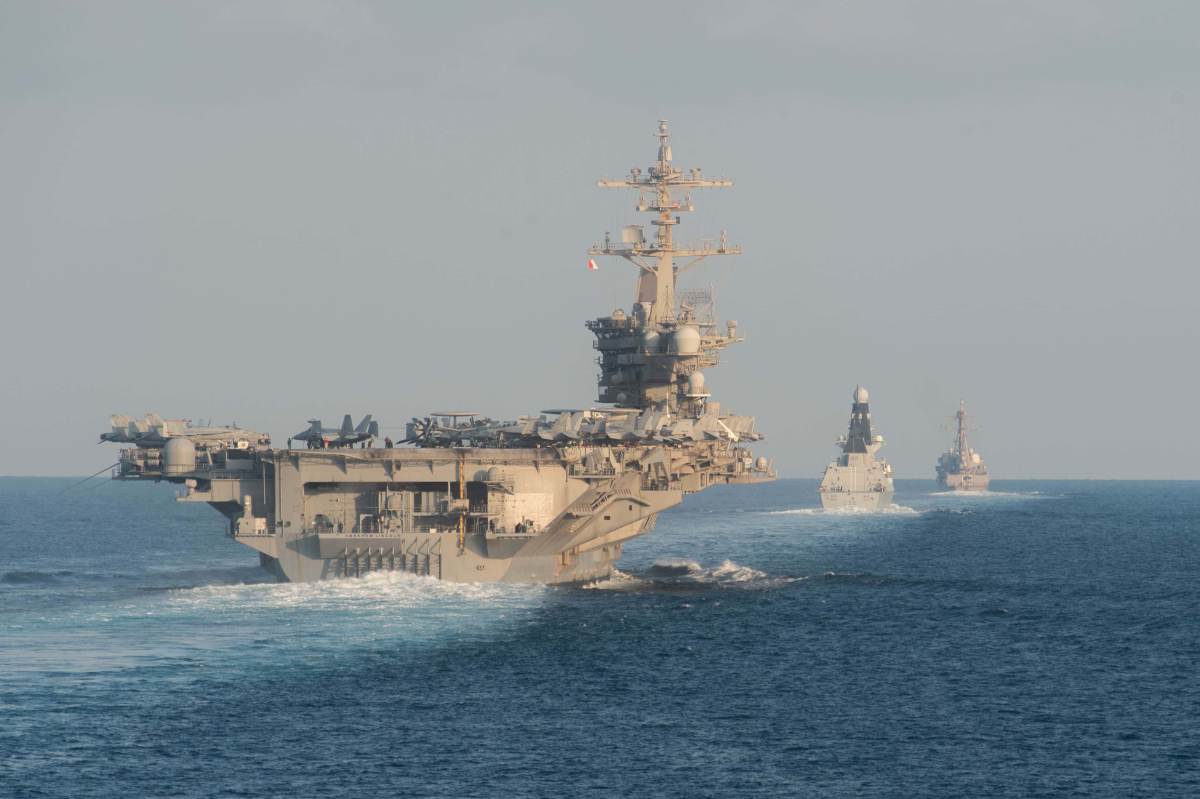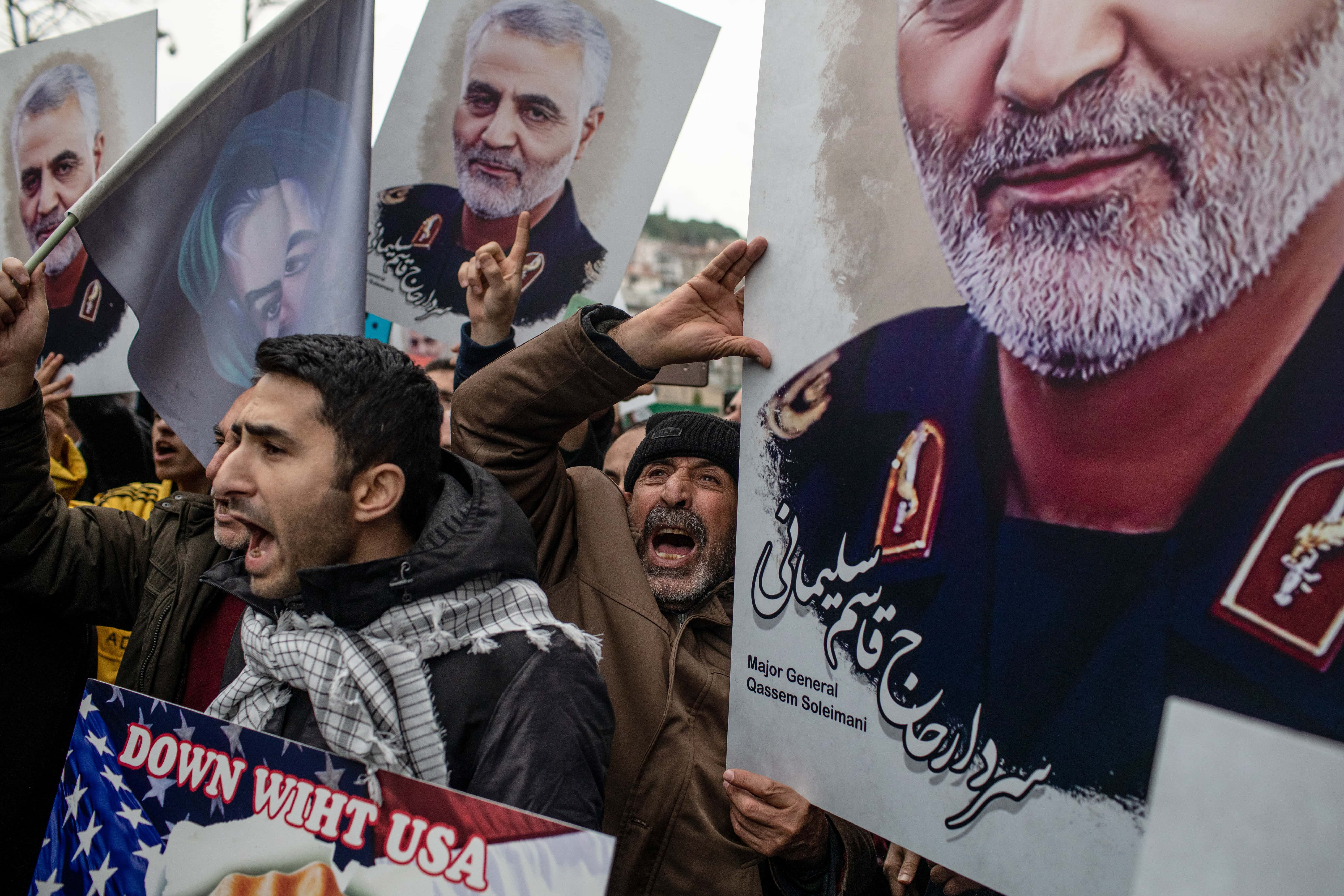Joe Biden wants to revive Iran ties but Donald Trump's pressure on Tehran in his last days makes it challenging

One of President-elect Joe Biden’s biggest challenges in foreign policy will be dealing with the Middle East and more particularly, Iran. President Donald Trump has ensured during his four-year term that Washington’s relation with Tehran reached the nadir and even though Biden has expressed interest in reviving the ties, it is not going to be an easy task. China, Russia and European nations that are seeking to save the nuclear deal with Iran said on Monday, December 21, that though they are ready to welcome the US back into the accord (formally called the Joint Comprehensive Plan of Action or JCPOA), Trump’s escalation of pressure on Tehran during his dying weeks in the office could create serious roadblocks for the Biden administration to negotiate peace with the West Asian nation, The Washington Times reported. Former President Barack Obama, to whom Biden was the No 2, initiated a nuclear deal with Iran in 2015 that included many other powers but Trump pulled the US out of the deal in 2018, saying it was doing Iran a biased favor.
Biden, 78, has signaled his keenness to rejuvenate the 2015 deal but the outgoing administration “is doubling down with a campaign that has choked Iran’s economy over the past four years and contained Iranian aggression with regular shows of US military force in the Persian Gulf”, the Times report said. On Monday, the US Navy sent USS Georgia -- a nuclear-powered submarine -- through the Strait of Hormuz bordering Iran. It was even declared that the vessel could carry “154 Tomahawk land-attack cruise missiles” and “66 Special Operations Forces”. The USS Georgia was accompanied by USS Port Royal and USS Philippine Sea, both guided-missile cruisers.

“As an inherently flexible maneuver force, capable of supporting routine and contingency operations, Georgia’s presence demonstrates the United States’ commitment to regional partners and maritime security with a full spectrum of capabilities to remain ready to defend against any threat at any time,” the Navy’s 5th Fleet said in a statement.
The US slammed Iran, saying militias-backed by Tehran were responsible for the attacks on the US Embassy in Baghdad on Sunday, December 20. Secretary of State Mike Pompeo said in a tweet: “Iran-backed militias once again flagrantly and recklessly attacked in Baghdad, wounding Iraqi civilians. The people of Iraq deserve to have these attackers prosecuted. These violent and corrupt criminals must cease their destabilizing actions.”
Iran-backed militias once again flagrantly and recklessly attacked in Baghdad, wounding Iraqi civilians. The people of Iraq deserve to have these attackers prosecuted. These violent and corrupt criminals must cease their destabilizing actions.
— Secretary Pompeo (@SecPompeo) December 21, 2020
Iran also condemned the attacks, saying the attacks were “unacceptable” and “dubious” and lashed out at Pompeo over his remarks, saying the latter “is known for his lie and cheating”.
US-Iran relations have hit the bottom this year
The relation between the US and Iran plummeted at the very beginning of this year with one of Tehran’s top military leaders, Gen. Qassem Soleimani, getting killed in American airstrike outside the Baghdad airport. Recently, Iran lost a top nuclear scientist in Mohsen Fakhrizadeh, who was gunned down near Tehran and Iran blamed Israel for his assassination and the incident threatened escalation of tensions over Tehran’s nuclear program with the US, which is a close ally of Israel. Protests against the US could gain momentum in Iran next month which will mark the first anniversary of Soleimani’s death. Biden is also scheduled to take over around the same time which means his administration will start at a time when the US-Iran relationship is far from peaceful.

Diplomatic observers will be keen to see whether Biden will extend olive branches to Tehran. The Iranian side has expressed cynicism that it doesn’t matter who is in power at the White House and that Biden will not lift the sanctions that are in place restricting Iran because it feels containing Tehran is central to America’s policy towards that country. The country's foreign minister, Javad Zarif, said earlier this month that Tehran will comply with the nuclear deal if the Biden administration lifts the sanctions.
Recently, Trump reportedly wanted to attack Iran’s biggest nuclear facility following reports that it was alarmingly pursuing its nuclear program but was dissuaded by its top officials eventually. The Times report said America’s policy hawks have of late asked the Biden administration not to rush to ease the sanctions that Trump has imposed on Iran since withdrawing from the JCPOA.
“Although there are logistical and legal questions about what a potential US reentry into the nuclear deal might entail, Mr. Biden has suggested that Washington will seek a diplomatic arrangement that offers some form of sanctions relief in exchange for new nuclear enrichment limitation guarantees from Iran,” the Times report added.
The president-elect has stressed that he won’t allow Iran to acquire a nuclear weapon and will push to negotiate a deal that extends limits on Tehran’s nuclear activities that go beyond the original parameters and deadlines laid out in the 2015 pact, known formally as the Joint Comprehensive Plan of Action (JCPOA).
“In consultation with our allies and partners, we’re going to engage in negotiations and follow-on agreements to tighten and lengthen Iran’s nuclear constraints, as well as address the missile program,” Biden told The New York Times in an interview published this month. His remarks have been welcomed by China, Russia and European powers that have been part of the 2015 deal but yet, the incoming president will have his work cut out in bringing the peace talks back on track.










